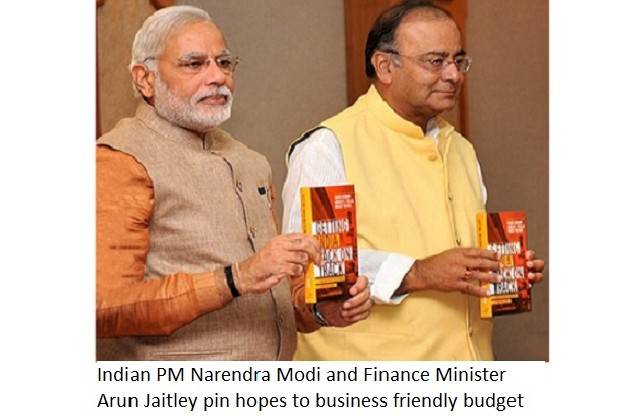India Open for Business

“Give me 60 Months, and I promise you a lifetime of happiness and peace” – Narendra Modi commenting in January, 2014 on the 60 year record of failure to deliver economic prosperrity of then incumbent party, The Indian National Congresss
Open for Business: Modi’s Budget Promises a New India
By Zahir Janmohamed
When US Senator, and former presidential candidate, John McCain met with India’s newly elected prime minister Narendra Modi earlier this month, he joked, “You have the greatest expectations since the Second Coming.” The comment hardly overstates the euphoria in India today: Indians do not hope for an economic miracle from Modi – they assume it will happen and they are impatiently checking their watches wondering when, to borrow Modi’s campaign slogan, the achche din (good days) will be coming.
It may take a while, or so said Arun Jaitley, India’s minister of finance, minister of defence and Modi’s long-time ally, as he presented the country’s annual budget last week. Jaitley alluded to the prime minister’s landslide victory in May. “The people of India have decisively voted for a change. The verdict represents the exasperation of the people with the status-quo. India unhesitatingly desires to grow,” he said. But he also tried to quell expectations. “This is the beginning of our journey, not the end.”
Investors and economists, both foreign and domestic, watched and live-tweeted the rollout of the budget, waiting for the sound of India’s gilt doors swinging open. Instead all they could hear was the door cracking slightly ajar.
The stakes for those watching are high. After India’s record growth for the first decade of the 21st century, with GDP touching 9% in 2010-11, the economy has stalled in the past four years, and with strict regulations hampering foreign direct investment and notorious amounts of red tape to untie, the idea of investing in India has been perceived by many as a risk-riddled enterprise.
There was one state, however, that offered a slightly easier path to foreign investors: Gujurat, India’s western state of 60 million people, known for its entrepreneurial diaspora and its business-friendly chief minister who delivered a higher rate of growth than the national average in his 10 years in charge from 2004-2014, Narendra Modi.
The promises Modi put on the table during the campaign are alluring: 100? new smart cities, a bullet train between the major ones, a cleaned up Ganges River, tax reform, and an end to black money. During the campaign, the politician from Gujarat chided the incumbent Indian National Congress, who in 60 years in power had failed to bring economic prosperity to India. “You give me
60 months and I promise you a life of happiness and peace,” Modi said at a rally this January.
To read the full article, please click on the following link in our Finance and Commerce (F&C) Section (republished via i-copyright from our repub-partner publication, Newsweek): OPEN FOR BUSINESS MODI’S BUDGET PROMISES A NEW INDIA
 The Global Calcuttan Magazine
The Global Calcuttan Magazine
There were a lot of positives in the Indian budget but I think the absence of a roll-back on retrospective taxes was a glaring mistake. I think if the budget can be faulted, maybe it didn’t go far enough. The NDA has a clear mandate for dramatic change – they should use that political capital,now, before the people Indian press has their way with them and the people inevitably tire of Modi.